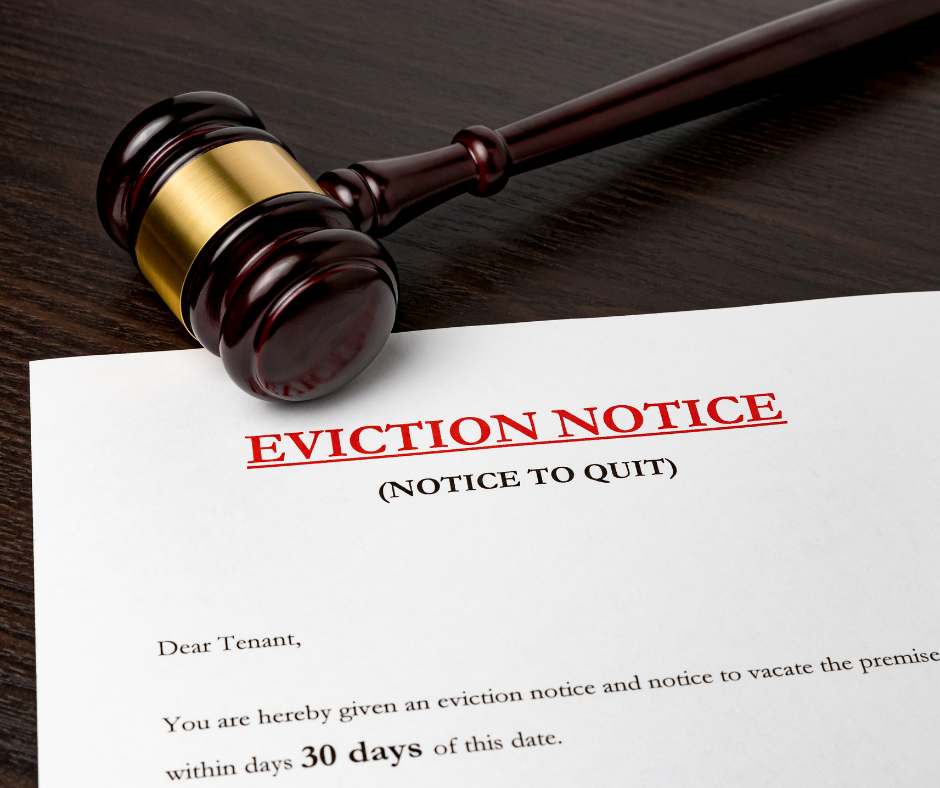
Property managers and landlords in Waterbury, Connecticut must comprehend the state’s eviction procedure. It is critical to understand the hidden costs of eviction and the financial impact on your rental business. Managing assets in this lively city presents distinct challenges and expenses that necessitate a strategic approach.
In the narrative of property ownership, every decision carries weight. Join us on this exploration of the intricacies of Waterbury property management, where we’ll provide insights into both financial and legal aspects. Analyzing every aspect of the eviction process in Ct, we will reveal the legal cause for eviction, break down each stage, and clarify the associated costs.
However, what if there was a way to completely prevent these expenses and lessen the likelihood of eviction? In this blog article, we won’t just break down the true cost of eviction, we’ll also explore proactive measures to prevent it.
Let’s dive into understanding the challenges and discovering proactive measures to safeguard your investment in Waterbury property management.
Understanding the Legal Grounds for Eviction in CT
Before we talk about costs, let’s talk about when it’s okay to ask someone to leave your property in Connecticut. It’s important to know the reasons that make eviction legally acceptable. This helps you make sure you’re doing the right thing.
In Connecticut, a common reason is when a tenant doesn’t pay rent. If this happens a lot, you might be able to ask them to leave. Breaking the rules in the lease is another reason. If tenants are not following the agreement you both signed, you might have the right to evict them.
Beyond these, there are other reasons, like if a tenant is doing something illegal on your property or causing a lot of damage. If they’re a threat to others on the property, that’s another reason you might be able to ask them to leave.
To be sure you’re on solid ground, keep good records of any issues and understand the rules in Connecticut about landlords and tenants. Knowing the reasons you can ask someone to leave helps you make sure you’re doing things the right way. It’s like knowing the rules of the game before you start playing.
The Process of Eviction: A Step-by-Step Breakdown
Property owners and managers in Connecticut need to tread carefully and comprehend the legal implications of the eviction method. Now permit’s discover a radical, step-by-step rationalization of what to search for at each eviction level:
1. Issue Eviction Notice:
The procedure usually begins with the renter receiving an official eviction notice. This notice outlines the grounds for eviction, including nonpayment of hire or rent violations, and gives the renter a timetable to solve the issue. At this factor, it’s essential to understand the precise notification requirements and make sure all paperwork is so as.
2. Await the Tenant’s Reaction:
The tenant has a period to respond after the eviction word is served. A tenant may be given the risk of making things proper, consisting of paying beyond-due rent or taking care of lease infractions, depending on the instances surrounding the eviction. It is critical to understand the legal timelines related to tenant responses.
3. File an Eviction Complaint:
An eviction case must be filed with the relevant court if the tenant does not resolve the difficulties within the allotted time. This commences legal proceedings and marks the formal start of the eviction process. When filing these documents, property owners are required to follow the guidelines set forth by the court.
4. Deliver the complaint and summons:
After the tenant is served with a summons and complaint by the court following the filing of an eviction case, This paper informs the renter of the legal action being taken and includes information on the court hearing. Proper serving of these documents is required for the eviction process in CT to proceed.
5. Tenant’s Response and Court Hearing:
In reaction to the summons and complaint, the tenant is given the option to either well-known the allegations or provide a defense. A courtroom consultation has been planned, through which both parties can present their instances. To support their claims, property managers and owners need to be well-prepared with paperwork.
6. Acquire the Possession Judgment:
The property owner is granted possession of the land if the court finds in their favor. This legal document enables the eviction process to proceed. It’s worth noting that the court may award any unpaid rent or damages owed by the tenant.
7. Writ for Possession:
Once the landlord has obtained a judgment, they can ask the court for a writ of ownership. This rent gives police enforcement the authority to evict a tenant who refuses to go away of their very own preference. Timing and collaboration with law enforcement are important at this stage.
8. Execution of the Eviction:
The eviction is finished by way of law enforcement, who physically remove the tenant and their things from the property. To avoid legal responsibility, belongings owners should follow legal and ethical standards throughout the process.
The Costs Involved in Evicting a Tenant in CT


In Connecticut, evicting a tenant can rum up to $355 in total, including filing fees and legal notice delivery costs. However, it is crucial to note that this sum may alter depending on additional fees for specific services. Eviction cases begin in Superior Court, and while comprehending the basic fees is important, it is also critical to examine any additional costs that may arise.
1. Getting Started – Initial Court Filing Fee
To begin the eviction procedure, landlords have to report a lawsuit in Superior Court, known as the Summary Process. This initial court filing fee is $175, and it is the same throughout all cities in Connecticut.
2. Letting the Tenant Know – Summons Service Fee
The court serves the tenant with an official notice known as a summons after filing the complaint. These Summons should be brought to the tenant using a person authorized by the landlord. This service needs to be finished a minimum of 12 days before the eviction hearing and charges $30 plus a further $10 for each additional tenant.
3. Final Notice – Writ of Execution Service Fee
A Writ of Execution – the tenant’s final notice to vacate the property—is issued if the court rules in the landlord’s favor. This notification is delivered by a state marshal and carries a fee of $50.
4. Making Them Leave – Writ of Execution Enforcement Fee
The state marshal may demand $100 per hour to enforce the Writ if the tenant refuses to vacate after receiving it. This can retail transferring the tenant and their possessions to a storage facility by physical removal.
5. Analyzing the Final Decision – Notification of Appeal Filing Fee
To challenge the court’s decision, one must pay a $175 charge and file an appeal within five days of the decision. This is especially important for those who disagree with the court’s ruling.
6 Top Tips for Minimizing Eviction Costs in CT
Property owners who rent out apartments should try their hardest to minimize the likelihood of having to serve tenants with evictions. Early prevention can save a lot of money on legal fees and even eviction costs.
1. Fast communication:
Get in touch with a tenant right away if they start to miss payments. Having open lines of communication can frequently result in a resolution that avoids the need for eviction proceedings.
2. Provide payment plans:
Be open to working out a payment plan, even with bad tenants. Flexible payment plans can help renters, including those facing challenges, avoid evictions, save money on legal fees while maintaining the rental agreement. Renters may simply need a little extra time to pay their rent on occasion. All new agreements should be thoroughly documented.
3. Government assistance programs:
These programs may help tenants cover their missed rent payments. By directing a tenant to these resources, you could receive overdue rent while alleviating the financial burden on both parties. Such programs are designed to offer temporary relief in times of financial strain.
4. Knowledge of the law:
When handling an eviction case, be aware of your rights. Knowing whether you can end a lease early or the distinctions between renting and leasing will guide your actions and prevent unnecessary expenses.
5. Mediation programs:
Settle conflicts, and make use of your local mediation services. To reach a win-win solution, these services give you and the tenant the chance to talk about problems with a third party who is not biased. To resolve issues with a lease or rental agreement without going to court, this can be a useful strategy. However, both parties must willingly participate in the process. This method can be far less expensive than regular judicial processes.
6. Cash for keys:
Providing a voluntary departure incentive, such as cash for keys, might occasionally be a more cost-effective option than removing squatters.
Final Thoughts
Knowing the process for eviction in Connecticut is essential for landlords and property managers since every choice counts in the world of Waterbury property management. This blog from Idoni Management explains the legal grounds, procedural stages, and expenses of eviction. Beyond a simple cost breakdown, it promotes preventative actions to avoid eviction and emphasizes the significance of making well-informed decisions.
As you face problems and opportunities, Idoni Management strives to empower Waterbury landlords, providing a wise and profitable approach to property ownership.




